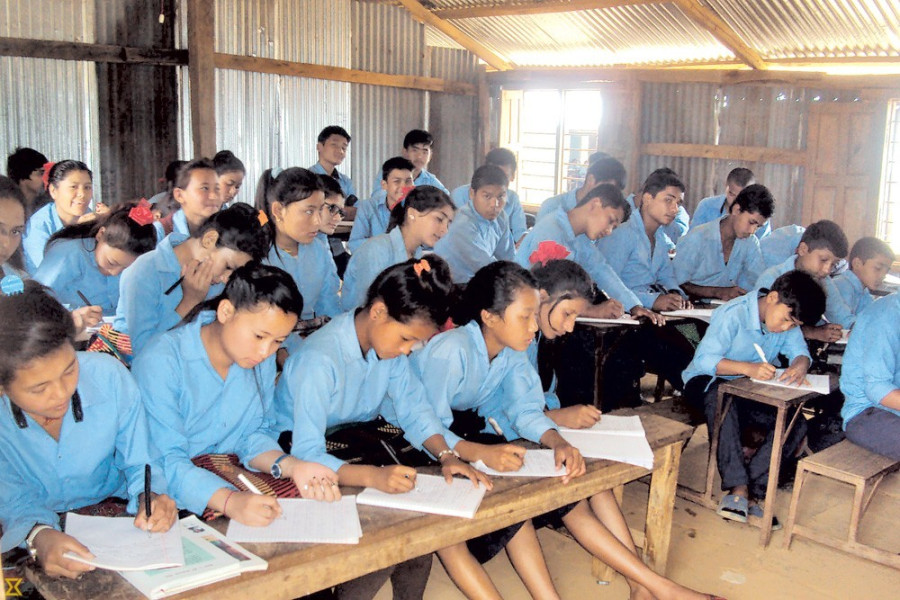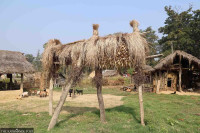National
Local councils are adopting unique measures to improve public school education
From recruiting younger teachers and developing localised curriculum to merging private and public schools, local governments are taking drastic steps.
Binod Ghimire
In an attempt to improve the quality of its public schools and hire fresh graduates, Changu Narayan Municipality on Friday introduced a retirement package for teachers above 50 years of age. The municipality will provide an additional Rs 100,000 in retirement benefits for teachers who leave their jobs early and make way for new ones.
Teachers are expected to report to the education department by mid-August and around 25 teachers are expected to retire. Som Prasad Mishra, Changu Narayan’s mayor, said that current teachers are too old to transform themselves with changing times. Therefore, a new generation which has potential and energy to change should get opportunities instead.
“Transformation of schools is not possible without competent teachers. Hiring new teachers is a reformative measure we are adopting to better our public schools,” Mishra told the Post. There are 356 teachers in 34 of Changu Narayan’s schools.
Local governments have the authority to manage school-level education, from recruiting teachers to holding examinations and developing their own curriculum. Like Changu Narayan, dozens of municipalities are taking advantage of this constitutional authority to transform their public schools.
In April, two rural municipalities in Palpa went a step ahead and merged private schools within their area with public schools, inducting all teachers and other staff as employees of the local government. All five private schools in the Purba Khola Rural Municipality and one in Gulmi Durbar Municipality were integrated into nearby public schools to end the disparity in education and improve public schools, said the chiefs of the rural municipalities.
Some local governments have even made it mandatory for government officials and public school teachers to enroll their children in public schools. Mandawi Rural Municipality in Pyuthan and Maijogmai Rural Municipality in Ilam, for instance, deducts a certain amount from government officials’ salaries if they refuse to do so. Jit Bahadur Rai, chairman of Maijogmai, said that around 50 people who were drawing government salaries have enrolled their children in public schools since the new academic session, which commenced in April.
“The step was taken to make them [teachers and government employees] accountable to improve public schools and it has worked,” Rai told the Post.
Furthermore, many local governments have introduced their own local curriculum, which reflects local history, culture and environment.
Hom Narayan Shrestha, chairman of Jugal Rural Municipality in Sindhupalchok, said that it’s important for students to learn about their own area and that the curriculum has been designed to reflect the same. While the core content in subjects like science or mathematics is the same across the nation, local context has been added to subjects like social studies.
Shrestha, who is also the president of the National Association of Rural Municipalities, said that dozens of local governments have taken different measures to improve public school education.
“The responsibility to improve public schools is now on the shoulders of local governments. Many have realised this and are working accordingly,” said Shrestha.
***
What do you think?
Dear reader, we’d like to hear from you. We regularly publish letters to the editor on contemporary issues or direct responses to something the Post has recently published. Please send your letters to [email protected] with "Letter to the Editor" in the subject line. Please include your name, location, and a contact address so one of our editors can reach out to you.




 8.54°C Kathmandu
8.54°C Kathmandu















